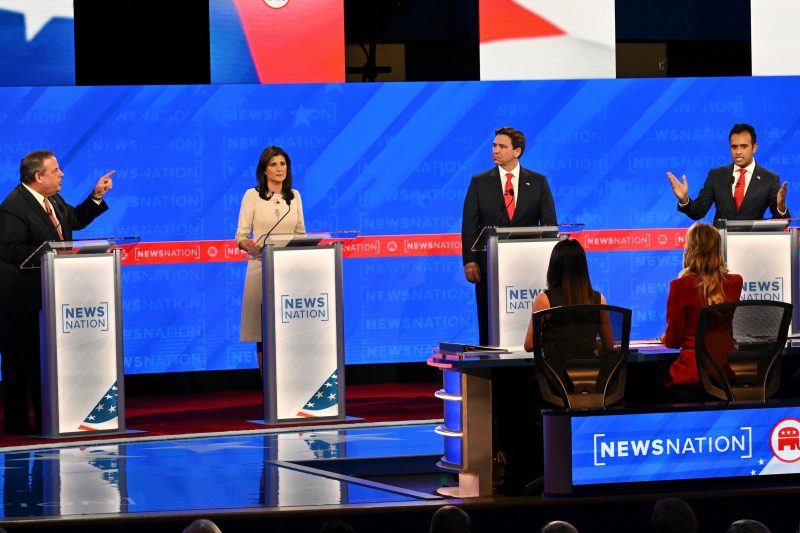Two networks announced Thursday that they would host Republican presidential debates next month in early nominating states, offering some contenders additional opportunities to sway voters after Wednesday night’s debate in Tuscaloosa, Ala., which might be the last one this cycle sponsored by the Republican National Committee.
CNN announced plans for two debates: the first in Des Moines on Jan. 10, less than a week before the first-in-the-nation Iowa caucuses for Republicans; the second in Goffstown, N.H., on Jan. 21, ahead of the Granite State’s primary.
ABC News said it would team up with a local television station to host a debate in the Manchester, N.H., area, on Jan. 18, in coordination with the New Hampshire State Republican Committee.
Wednesday night’s debate was the fourth sponsored by the RNC, and the party has not announced any additional sanctioned debates. The RNC has partnered with various media organizations for its four debates but maintained strict control over the process.
Four Republican candidates — former U.N. ambassador Nikki Haley, Florida Gov. Ron DeSantis, former New Jersey governor Chris Christie and tech entrepreneur Vivek Ramaswamy — took the stage in Tuscaloosa. Former president Donald Trump skipped the event, as he did with the previous three debates.
To qualify for the CNN debates, candidates must meet polling standards set by the network that could result in smaller affairs than Wednesday night’s.
ABC said it would announce qualification standards and other details later.
To this point, Republican candidates have been subject to an RNC exclusivity pledge. Any candidate who participates in a non-sanctioned debate risks being barred from future events hosted by the RNC.
However, RNC officials have been considering loosening rules to allow candidates to take part in other debates without penalty.
DeSantis has been among the critics of the current RNC rules and said he is open to “more freewheeling debates” outside the official party system, even proposing a one-on-one, hour-long debate with Trump. DeSantis has said he wants debates before both the Iowa caucuses and the New Hampshire primary, which the RNC has not committed to organizing.
Meanwhile, Trump and his advisers have repeatedly pressured the RNC to stop having debates, and Trump has expressed frustration that Chairwoman Ronna McDaniel and the committee have continued the process.
McDaniel and her allies say she has tried to hold fair debates and be “neutral” in the nominating process.
In the 2016 primary season, the Republican Party hosted 12 debates. There was one each month from August to December 2015, and then two in January, three in February and two in March of the following year.
There were more debates in 2008 and 2012, in part because the national party had not imposed requirements on the process to limit the frequency and impose standards of participation.
